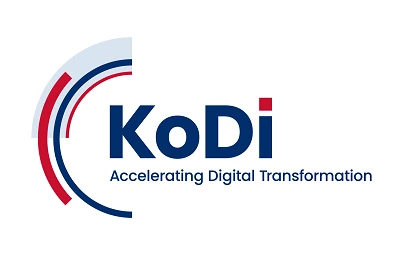Across the globe, people and countries are facing an avalanche-like growth of debt and economic inequality in a rapidly changing digital landscape. The situation has been exacerbated by the COVID-19 pandemic, which pushed 97 million people into poverty in 2020. In some countries, debt levels have soared to record highs due to government support for distressed economies.
Many people can relate to these challenges, which may explain the global obsession over the new Korean survival drama, Squid Game. The financially distressed characters hope to escape poverty by participating in deadly games for a large cash prize. But in the real world, people, governments, and businesses are turning to digital technologies to stay connected and access services and jobs in response to the COVID-19 pandemic and the global economic crisis.
Korea has a lot to offer in this space. It has transitioned from a low-income to a high-income country in recent decades, building and leveraging its innovation and technology capabilities. Today, Korea is a major hi-tech exporter of computer chips, mobile phones, and next-generation vehicles. Korea’s successful digital transformation offers many lessons for emerging economies and developing countries.
Meet KoDi
The Korea Digital Development initiative (KoDi), launched in July 2021 by the World Bank’s Digital Development Global Practice, illustrates this approach. The three-year initiative aims to help low-and middle-income countries to accelerate digital transformation that is data-driven, secure, and green by sharing knowledge on recent reform practices and providing country-specific technical assistance.
KoDi’s emphasis is on the provision of operational and policy guidance for enabling an effective national data ecosystem for data sharing and value creation. This includes building adequate data infrastructure, safe usage of smart government platforms, and harnessing emerging technologies such as artificial intelligence for fostering public service efficiency, innovation, and job creation. To capitalize on the digital opportunities and manage risks, KoDi also highlights the importance of strengthening digital trust and reinforcing the role of digital in tackling climate change challenges. On trust, the emphasis is on supporting risk management and enhancement of policy and regulatory frameworks regarding cybersecurity in critical infrastructure as well as securing privacy across data flows. On greening digital, the focus is on identifying solutions—from innovative technologies to policies—in the path to decarbonize the ICT sector and increasing data-driven adaptation interventions on national and local levels.
The initiative leverages the experience and best practices of Korea, as well as other advanced digital countries, to build data ecosystems, spur green digital innovation, and leverage the sizeable economic and social opportunities of data-driven digital transformation. It builds on the World Development Report 2021, Data for Better Lives, and the Korean New Deal. Key Korean partners include industry leaders and government agencies, including the Ministry of Science and ICT, the Ministry of Economy and Finance, the Ministry of Interior and Safety, the National Information Society Agency, the Korea Internet and Security Agency, the Korea Advanced Institute of Science and Technology.
Towards a new data economy
Through the dystopian lens of Squid Game, we watched how never-ending debt can lead to true desperation. Although digital technologies alone cannot address socio-economic issues, they are critical for creating innovative enablers to foster inclusive growth and sustainable development.
The recent acceleration in digital transformation contributed significantly to the COVID-19 response and preparation of the post-COVID-19 era. With its potential to expand access to markets and opportunities, urgent investments in digital development can help us unlock the value of data for reducing poverty and inequality while accelerating economic transformation for creating better jobs for all.
Related:
Digital Development at the World Bank
Digital Development Partnership





Join the Conversation